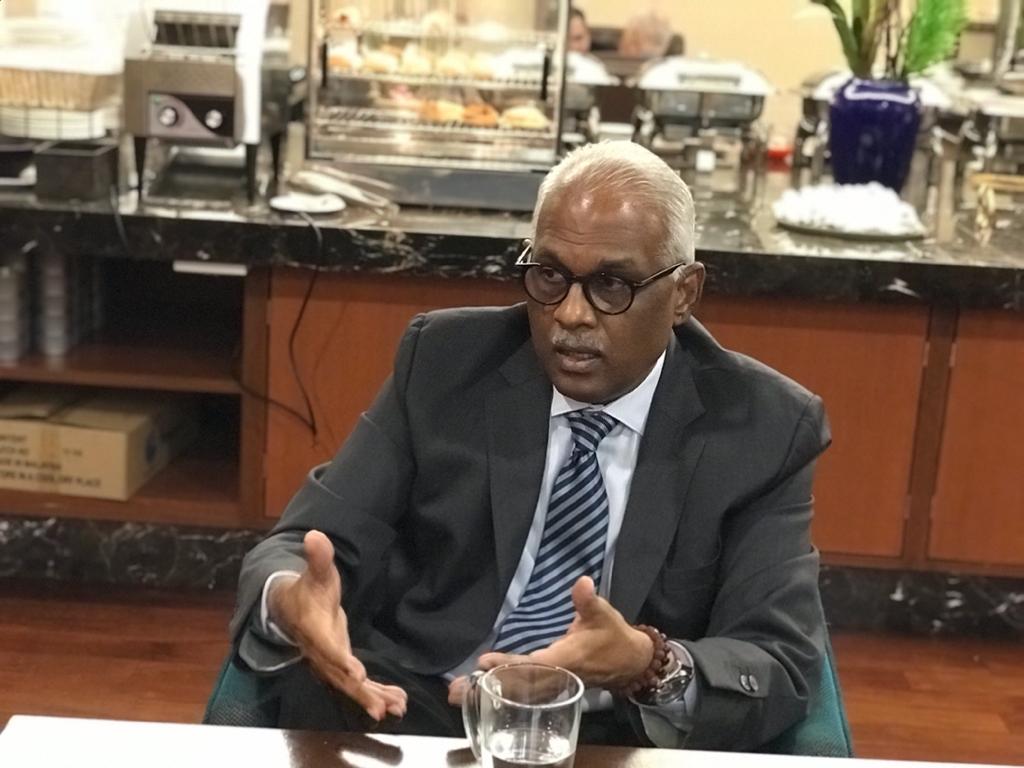KUALA LUMPUR, June 3 – The current shortage of medicine supply in Malaysia will likely force public health care facilities to limit dispensation of drugs, Klang MP Charles Santiago said.
This in turn will increase out-of-pocket spending (OOP) on health for many households, as fewer drugs dispensed will translate to more frequent trips to public health clinics and hospitals run by the Ministry of Health (MOH).
“What they will do now is, see before, when you go to the public hospitals, they’ll give you medicine for three months. Now, they’ll reduce it to one month, [and then] give enough for two weeks,” Charles told CodeBlue when contacted.
“This actually adds cost because people have to travel, and that’s going to be a cost to people as well.”
The DAP lawmaker from Selangor pointed out that many households are already bearing the brunt of additional costs from Covid due to constantly having to purchase hand sanitiser and face masks.
“So, people’s expenditure is actually increasing. In the context of people having lost jobs, people’s incomes have reduced, you really have a mad mix, you know, a pathetic mix of a variety of things that is hurting the B40, or now what you call the B60,” Charles said. “It’s going to be really challenging.”
CodeBlue reported yesterday complaints from private general practitioners (GPs) that various prescription and over-the-counter (OTC) medications — such as antibiotics, and medicines for fever, flu, cough and cold, as well as syrups for children — are already out of stock. The shortages affect both generic and original medications.
Malaysian pharmaceutical suppliers attributed the “critical” medicine shortage to the two-month lockdown in Shanghai, China, and the Russia-Ukraine war that disrupted global supply of active pharmaceutical ingredients (APIs), and pharmaceutical intermediates and excipients — raw materials needed to create finished pharmaceutical products.
Malaysia’s entire supply of finished pharmaceutical products are either directly imported or indirectly imported through the import of those raw materials for the local manufacture of medicines.
The Malaysian Association of Pharmaceutical Suppliers (MAPS) had said Malaysia was “severely affected” by the Shanghai lockdown and Russia’s invasion of Ukraine because Malaysia depends on the global supply of both APIs and finished pharmaceutical products. China is the world’s number one supplier of APIs and pharmaceutical intermediates.
Charles told MOH to indicate the exact nature of the medicine shortage and to provide clear strategies to deal with the issue.
“Denying it is not going to help because we know that the Ukraine-Russia war together with China’s supply chain shortage has an impact on almost every facet of our goods and services in the country. So, they have to tell us exactly what the nature of the shortage is.
“Number two, what are the government’s plans itself in trying to source from other countries, if possible, and also to crank up existing production for producers in Malaysia.
“Of course, local producers are also dependent on resources from China and so on and so forth – but see if they can actually come up with some kind of a plan with the existing surplus resources that they might have or something. I think the onus goes back to the government to advise (on the situation),” Charles said.
He added: “The private sector also has to tell us whether they too are facing the shortage or not. So far, it’s only the companies that are producing medicines that are making the statement, but the hospitals haven’t said, ‘We’re actually having a shortage. We don’t have medicine for A, B, C, D’ and so on’.”
Charles suggested that the government capitalise on the current medicine shortage to form new business partnerships and to explore new markets in countries like Egypt, which is among the largest producers of generic drugs in the Middle East and Africa, as well as globally.
“I think this is the best for them to source from other countries like Egypt, which has a very high level of domestic production – their generic [medicine] production is quite high. Egypt is one of those countries, so maybe we can take advantage of new business partners and new markets if you want,” the lawmaker said.
Drug shortages, however, are not limited to just Malaysia.
Countries like Sri Lanka, which imports over 80 per cent of its medical supplies, are also running out of nearly 200 medical items, including 76 essential life-saving drugs, from blood-thinners for heart attack and stroke patients to antibiotics, rabies vaccines and cancer chemotherapy drugs.
In Australia and across the United States, screening tests are being postponed due to a global shortage of medical imaging dyes, used in diagnostic tests such as CT scans.
Drug producing countries such as Egypt may implement export bans – as seen in India’s wheat export ban and Malaysia’s recent poultry export ban.
In 2016, the devaluation of the Egyptian pound made the import of raw materials more expensive, forcing producers to stop making certain cheap generic medications to cut losses. This led to a widespread shortage of medicines across Egypt, including cancer treatments as well as basic items like insulin, tetanus shots, and contraceptive pills.








